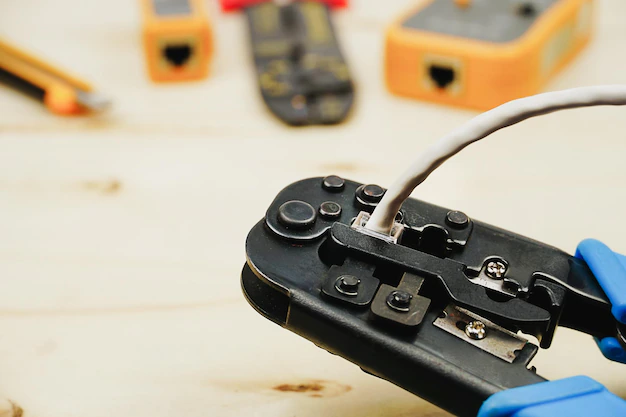Crimping an Ethernet connector is a simple way to attach two Ethernet cables. There are a few reasons crimping is effective: The connectors are crimped together against the metal pins on the cable, which prevents them from coming loose. The wire inside the connector is also compressed, which strengthens the connection. Crimper is a versatile tool that can be used for a variety of Ethernet connector splicing tasks.
A few things to remember when using crimper: Always use the correct tool for the task. Crimper is not meant to replace other connectors such as pliers or wire cutters. Make sure the wires are properly insulated before crimping. This will help prevent shorts and potential electrical damage. Finally, be sure to use caution when working with live electrical wiring. Crimping can cause wires to fray, making them less conductive and susceptible to overheating.
Connector
Ethernet connectors are a crucial part of any network. However, networking problems can quickly arise when they are damaged or faulty. Fortunately, Ethernet connector splicing is a quick and easy way to fix these problems. This article will explore the basics of connector splicing and explain why it works. Connector splicing is a technique used to repair damaged or faulty Ethernet connectors.
It’s fast and easy, and it can solve many networking problems. However, to understand connector splicing, you first need to know about Ethernet cables. An Ethernet cable comprises two sections: a wire conductor and a plastic sheath. The wire conductor is made of copper wire, and the sheath is made of plastic to help protect the conductor from damage.
When an Ethernet cable is plugged into a port on your computer, the wire conductor contacts the port’s metal housing. This creates an electrical connection between the wire conductor and the port, which lets your computer send data through the port. If something goes wrong with the connection between the wire conductor and the port, you can experience various networking problems.
Types of Ethernet Connectors
Ethernet connectors come in various shapes and sizes, making it difficult to connect wires without crimping. The ethernet cable crimping is the process of using a crimping tool to join two ends of an insulating wire together securely.
There are different types of Ethernet connectors, so it’s important to know which type you’re using. Ethernet cables use the RJ-45 connector. This connector has four pins spaced evenly around the circumference of the connector. The pins should align correctly when you plug an RJ-45 into an Ethernet jack. If they don’t, you can twist one pin around another until they do.
The RJ-45 connector is also used for serial connections, such as those used for printers or modems. Serial connections use different pins than Ethernet, so you’ll need to be careful when connecting them. Other common types of Ethernet connectors include the DB-9 and DB-25 connectors. These connectors have nine and 25 pins, respectively. They’re used for connecting network cards to motherboards or other devices.
